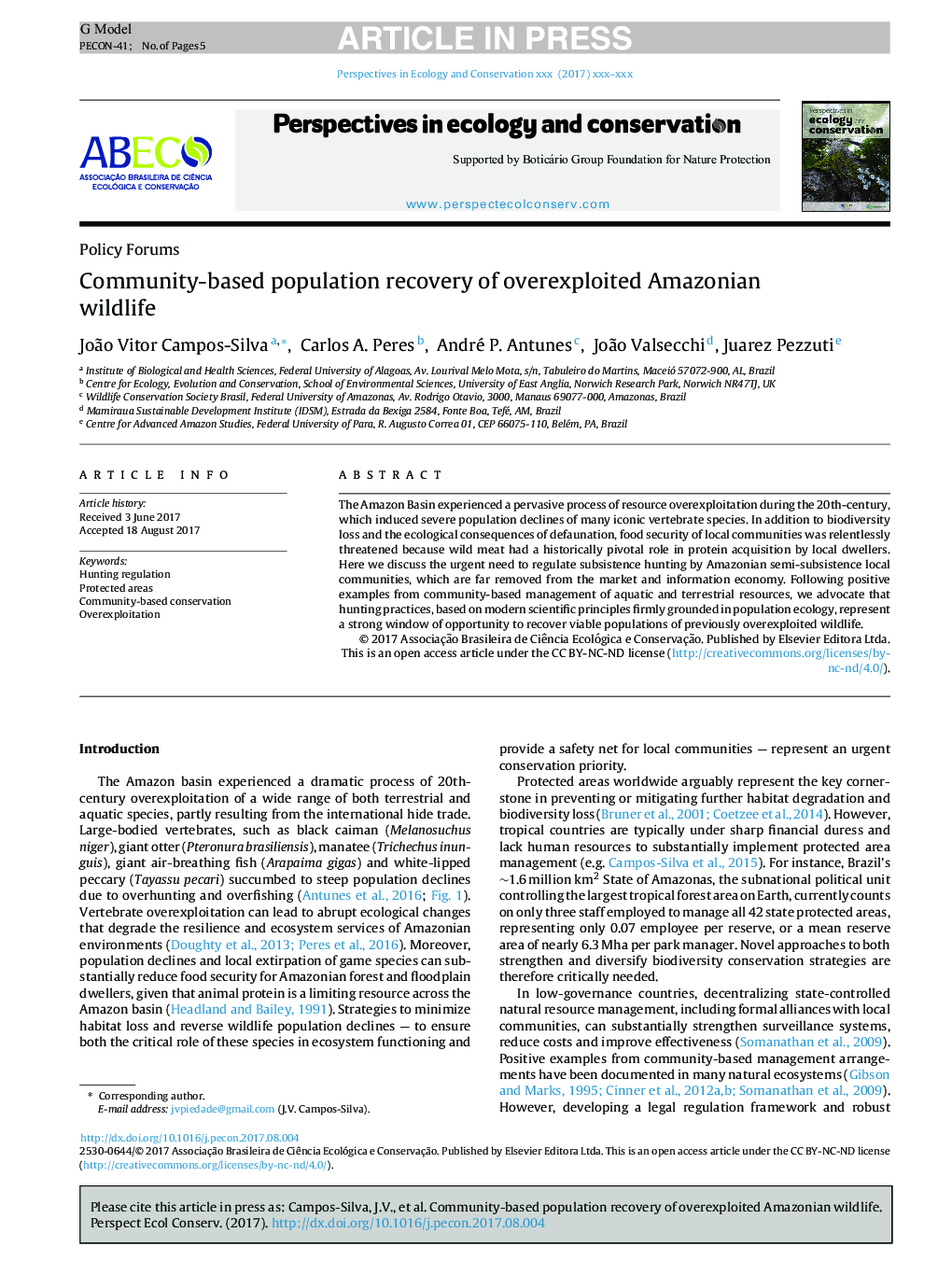| Article ID | Journal | Published Year | Pages | File Type |
|---|---|---|---|---|
| 8920065 | Perspectives in Ecology and Conservation | 2017 | 5 Pages |
Abstract
The Amazon Basin experienced a pervasive process of resource overexploitation during the 20th-century, which induced severe population declines of many iconic vertebrate species. In addition to biodiversity loss and the ecological consequences of defaunation, food security of local communities was relentlessly threatened because wild meat had a historically pivotal role in protein acquisition by local dwellers. Here we discuss the urgent need to regulate subsistence hunting by Amazonian semi-subsistence local communities, which are far removed from the market and information economy. Following positive examples from community-based management of aquatic and terrestrial resources, we advocate that hunting practices, based on modern scientific principles firmly grounded in population ecology, represent a strong window of opportunity to recover viable populations of previously overexploited wildlife.
Related Topics
Life Sciences
Agricultural and Biological Sciences
Ecology, Evolution, Behavior and Systematics
Authors
João Vitor Campos-Silva, Carlos A. Peres, André P. Antunes, João Valsecchi, Juarez Pezzuti,
